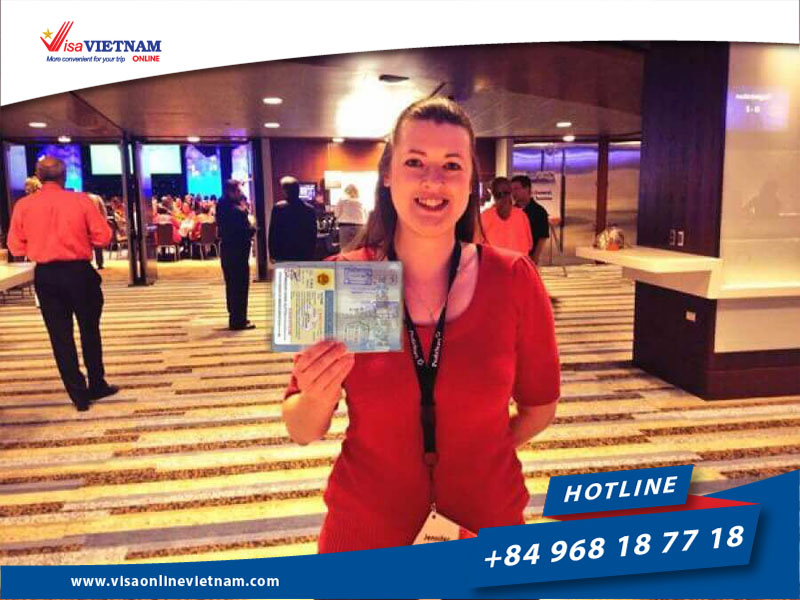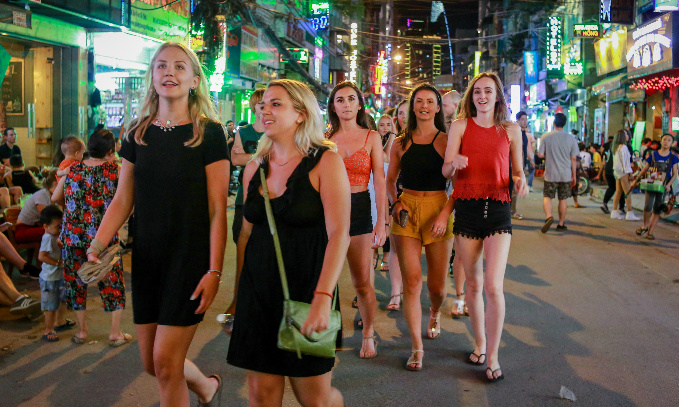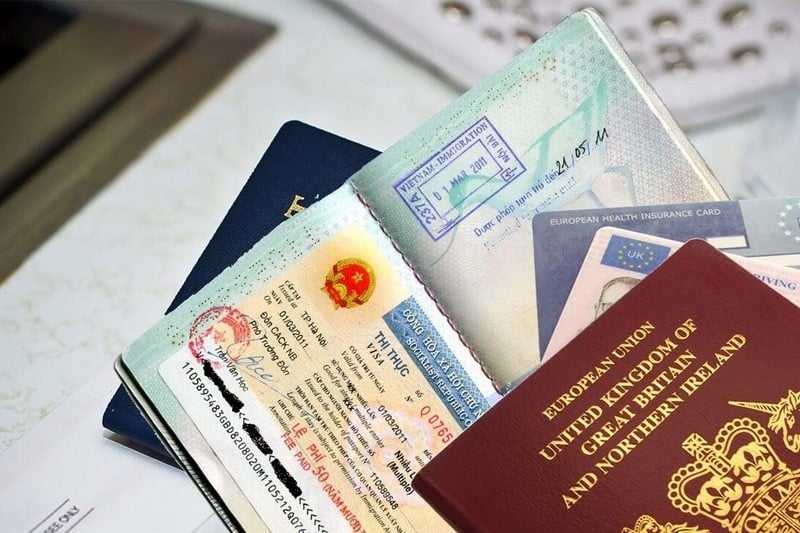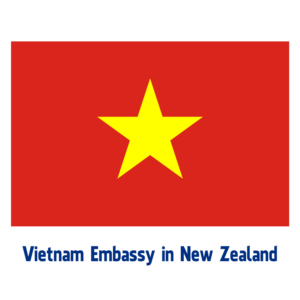
Vietnam Visa for UK Citizens – Complete Guide 2025 🇬🇧✈️🇻🇳
Vietnam, a captivating country steeped in history and culture, welcomes visitors from across the globe. However, a carefully planned visa process is essential for UK citizens seeking to experience this Southeast Asian gem. Understanding Vietnam’s visa policies is paramount for a smooth and enjoyable travel experience. This comprehensive guide will demystify the Vietnam visa process for UK citizens, empowering them with the knowledge to navigate it effectively.
Overview of Vietnam’s Visa Policies

Vietnam’s visa policies are designed to ensure that visitors meet certain requirements and adhere to the country’s regulations. The government has established various visa categories to accommodate different travel purposes, including tourism, business, and transit. For UK citizens, understanding these policies is crucial to avoid any complications during their travels.
Visa regulations can change frequently, so it’s essential for travelers to stay informed about the latest updates before planning their trip. The Vietnamese government has made efforts to streamline the visa application process, especially for tourists and business travelers. This includes the introduction of e-visas and the option for visas on arrival at select international airports.
Additionally, the visa policies may vary depending on the nationality of the traveler. UK citizens enjoy specific privileges, such as the ability to apply for an e-visa or obtain a visa on arrival, making the process more accessible. However, it is still vital to understand the eligibility criteria and documentation required for each visa type.
Importance of Understanding Visa Requirements
Navigating the intricacies of Vietnam’s visa requirements is crucial for UK citizens, as failing to comply can lead to delays, denial of entry, or even fines upon arrival. Properly understanding the types of visas available, the necessary documentation, and the application procedures is essential for a stress-free journey.
Understanding visa requirements also helps travelers plan their itineraries more effectively. For instance, knowing the duration of stay allowed under each visa category can influence travel plans, accommodation bookings, and activities. Moreover, being aware of the specific documents needed for the visa application can save time and prevent last-minute hassles.
In summary, comprehending the visa requirements not only ensures compliance with Vietnamese laws but also enhances the overall travel experience. By being well-prepared, UK citizens can focus on enjoying their time in Vietnam rather than worrying about visa-related issues.
Types of Visas Available for UK Citizens

There are multiple visa categories for UK citizens traveling to Vietnam, each catering to specific purposes and durations of stay. Choosing the correct visa type is vital to ensure a legal and hassle-free entry into the country.
Tourist Visa
The most common visa type for UK citizens visiting Vietnam for leisure, sightseeing, or family visits is the tourist visa. Tourist visas are typically granted for single or multiple entries and allow stays ranging from 15 to 90 days, depending on the visa type and duration granted.
Tourist visas can be obtained through various means, including online applications, in-person submissions at Vietnamese embassies, or upon arrival at designated airports. The convenience of applying for a tourist visa online has made it increasingly popular among travelers.
It’s important to note that while tourist visas are generally straightforward to obtain, travelers should ensure they have all necessary documentation ready to avoid any delays in processing. Additionally, travelers should familiarize themselves with the specific conditions attached to their tourist visa, such as restrictions on work or business activities.
Business Visa
For UK citizens traveling to Vietnam for business purposes, such as attending meetings, conferences, or negotiating contracts, a business visa is required. These visas allow stays ranging from 30 to 90 days and can be granted for single or multiple entries.
Business visas often require additional documentation compared to tourist visas. Applicants may need to provide an invitation letter from a Vietnamese company or organization, proof of business activities, and other supporting documents.
Obtaining a business visa can be more complex than a tourist visa, so it’s advisable for travelers to start the application process early. Additionally, travelers should be aware of the specific regulations governing business activities in Vietnam to ensure compliance during their stay.
Transit Visa
If you are transiting through Vietnam for less than 24 hours on your way to another destination, a transit visa may be necessary. These visas are generally obtained at the port of entry and typically allow you to remain in the transit area of the airport.
Transit visas are particularly useful for travelers who have layovers in Vietnam but do not intend to leave the airport. However, if you plan to exit the airport during your layover, it is essential to secure the appropriate visa beforehand.
Travelers should check the specific requirements for transit visas, as regulations may vary based on the length of the layover and the traveler’s nationality. Understanding these requirements can help avoid any unexpected complications during the journey.
E-Visa for UK Citizens
The Vietnam e-Visa is a convenient option for UK citizens. This online visa can be obtained in advance, eliminating the need for a visa on arrival. E-visas are generally valid for 30 days and allow single entry.
Applying for an e-visa is a straightforward process that can be completed online. Travelers must fill out the application form, upload the required documents, and pay the visa fee electronically. The e-visa is usually processed within a few working days, allowing travelers to receive their visa via email.
While the e-visa offers convenience, it is essential for travelers to verify that they meet the eligibility criteria for this visa type. Not all visa categories are available for online application, so ensuring compliance with the requirements is crucial.
Visa on Arrival: Pros and Cons
For UK citizens, Vietnam offers the option of obtaining a visa upon arrival at select international airports. While this can seem more convenient, it comes with some drawbacks.
Pros:
- Can be obtained directly at the airport, saving time and potentially avoiding travel delays.
- Offers flexibility for shorter trips, as you can apply for a visa upon arrival if your trip dates change.
Cons:
- You must meet specific eligibility criteria and provide necessary documents for approval.
- Processing time can be longer than obtaining an e-visa.
- May encounter queues or delays at the airport, particularly during busy travel seasons.
Travelers considering the visa on arrival option should weigh these pros and cons carefully. It is advisable to prepare all necessary documentation in advance to facilitate a smoother process upon arrival.
How to Apply for a Vietnam Visa

Applying for a Vietnam visa can be streamlined by following a step-by-step process. UK citizens have options for applying online or in person, both with specific requirements and timelines.
Step-by-step Application Process
To successfully apply for a Vietnam visa, UK citizens should follow a structured approach:
- Determine the visa type: Carefully assess your travel purpose and duration to choose the appropriate visa category.
- Gather required documents: Ensure you have all necessary documents for your chosen visa category, including a valid passport, application form, visa fee, and other supporting documents as required.
- Complete the application form: Submit your visa application form electronically or in person, providing accurate and complete information.
- Pay the visa fee: Ensure you pay the visa fee according to the agreed payment method and currency.
- Submit your application: Once the application is complete and all documents are in order, submit it according to the chosen method (online or in person).
By adhering to this step-by-step process, UK citizens can minimize the risk of errors and delays in their visa application.
Required Documents for Application
The specific documents required for a Vietnam visa will vary depending on the type of visa you are applying for. However, generally, you will need the following:
- A valid passport with at least six months of validity remaining upon entry into Vietnam.
- A completed visa application form.
- Two recent passport-sized photographs that meet specific requirements.
- A visa fee in the designated currency.
- Confirmation of your flight bookings and accommodation in Vietnam.
- Proof of your purpose of travel (e.g., invitation letter for business visas, travel itinerary for tourist visas).
Other supporting documents may be required depending on your specific situation, such as proof of financial means, a medical certificate, or a letter of sponsorship. Ensuring that all required documents are prepared in advance can significantly expedite the application process.
Online Application vs. In-Person Application
UK citizens have the option to apply for a Vietnam visa either online or in person. Each method has its advantages and disadvantages.
Online Application: Submitting your application online offers convenience and can save time. However, it is crucial to ensure you meet the eligibility criteria for an e-visa, as not all visa categories can be applied for online. The online application process is user-friendly, and applicants can track their application status easily.
In-Person Application: This option involves visiting a Vietnamese embassy or consulate in the UK. It may involve longer processing times, but it allows for face-to-face support and clarification of any questions you may have. Additionally, applying in person can provide peace of mind for those who prefer direct interaction with officials.
Ultimately, the choice between online and in-person application depends on individual preferences and circumstances. Both methods can lead to successful visa acquisition if all requirements are met.
Processing Time for Vietnam Visa

The time it takes to process a Vietnam visa depends on the chosen visa type and application method. It is essential to begin the application process well in advance of your planned trip to avoid any potential delays.
Standard Processing Times
Standard visa processing times can vary depending on the specific visa category and workload at the embassy or consulate. Generally, expect a processing time of several weeks. Tourist visas may be processed more quickly than business visas due to the latter’s additional documentation requirements.
Travelers should factor in processing times when planning their itineraries. Starting the application process early can help ensure that the visa is received in time for travel. Additionally, keeping track of application submission dates can aid in managing expectations regarding visa approval.
Expedited Processing Options
In some circumstances, expedited processing options may be available, but these usually come with additional fees. It’s advisable to contact the relevant embassy or consulate directly to inquire about expedited processing options and their associated costs.
Expedited processing can be beneficial for travelers with urgent travel plans. However, it is essential to weigh the added costs against the urgency of the trip. In many cases, standard processing times are sufficient for travelers who plan ahead.
Visa Fees and Payment Methods
The visa fees associated with a Vietnam visa vary depending on the type of visa, duration of stay, and chosen visa application method.
Breakdown of Costs Associated with Different Visas
- Tourist Visa: Prices can range from $25 to $150, depending on the visa duration and entry type.
- Business Visa: Fees can range from $50 to $200.
- Transit Visa: Often obtained at the airport and may incur a fee of around $25 to $50.
Travelers should budget accordingly for visa fees and consider these costs when planning their trip. Additionally, it is advisable to check for any changes in visa fees prior to applying, as they can fluctuate based on government regulations.
Accepted Payment Methods for Visa Fees
Visa fees can typically be paid by credit card, debit card, or bank transfer. Some embassies or consulates may also accept cash payments. Contact the appropriate embassy or consulate for the most current and specific payment options.
Being aware of accepted payment methods can help streamline the application process. Travelers should ensure they have the necessary funds available in the appropriate currency to cover visa fees.
Duration of Stay and Extensions
The duration of stay allowed with a Vietnam visa depends on the specific visa category granted.
Typical Duration for Various Visa Types
- Tourist Visas: Typically grant stays ranging from 15 to 90 days, with single or multiple entries.
- Business Visas: May allow for stays between 30 to 90 days, depending on the type of business activity.
- Transit Visas: Usually provide a maximum stay of 24 hours in the airport’s transit area.
Understanding the duration of stay associated with each visa type is crucial for effective travel planning. Travelers should ensure that their itinerary aligns with the allowed duration to avoid overstaying their visa.
How to Extend Your Visa While in Vietnam
If you need to extend your stay in Vietnam beyond the initial visa duration, you can apply for a visa extension within the country. This process typically requires submitting an application and providing supporting documentation, such as proof of financial means and a valid reason for extending your stay.
It is important to adhere to the requirements and timelines for visa extensions, as penalties may be imposed for overstaying your visa. Travelers should also be aware that visa extensions are not guaranteed and may be subject to approval by immigration authorities.
Entry Requirements Beyond the Visa
It’s essential to note that a visa is only one aspect of the entry requirements into Vietnam. UK citizens must also meet other criteria to ensure a smooth arrival.
Passport Validity and Other Essential Documents
- Passport Validity: Your passport must be valid for at least six months beyond your intended stay in Vietnam.
- Visa Application Form: Complete the visa application form accurately and truthfully.
- Passport-Sized Photographs: Two recent passport-sized photographs that meet specific requirements.
- Flight Confirmations: Provide confirmed flight bookings for both your arrival and departure from Vietnam.
- Accommodation Bookings: Demonstrate you have a place to stay during your visit with confirmed hotel or guesthouse bookings.
Ensuring that all necessary documents are in order before departure can help facilitate a smooth entry into Vietnam. Travelers should double-check their documentation to avoid any potential issues at immigration.
Health and Vaccination Requirements
Health requirements: There are no mandatory health requirements for UK citizens traveling to Vietnam. However, it’s advisable to consult with your healthcare provider to ensure you are up to date with recommended vaccinations.
Travel insurance: It’s highly recommended to obtain comprehensive travel insurance that covers medical expenses, evacuation, and other potential issues that may arise during your trip. Having proper insurance can provide peace of mind and financial protection during your travels.
Notes
Important Travel Tips for UK Citizens
- Travel Insurance: Secure comprehensive travel insurance that covers medical expenses, evacuation, and any potential emergencies.
- Emergency Contacts: Keep records of emergency contact numbers for the British Embassy or Consulate in Vietnam and any local emergency services.
- Currency Exchange and Payments: Carry a reasonable amount of Vietnamese Dong (VND) for everyday expenses, and familiarize yourself with payment methods accepted in Vietnam.
- Cultural Sensitivity: Respect local customs and traditions, being mindful of appropriate dress, behavior, and interactions.
Being prepared for cultural differences and practical considerations can enhance the overall travel experience for UK citizens visiting Vietnam.
Cultural Considerations When Visiting Vietnam
- Local Customs: Vietnamese culture places high value on politeness, respect, and hospitality. Be mindful of local traditions and customs, such as removing shoes before entering homes and temples.
- Bargaining: Haggling is common in markets and shops. Engaging in friendly negotiation can be part of the shopping experience in Vietnam.
Familiarizing oneself with local customs and etiquette can foster positive interactions with locals and enrich the travel experience.
Mistakes to Avoid
Common Pitfalls in the Visa Application Process
One of the most common mistakes travelers make is failing to thoroughly read and understand the visa requirements. This can lead to incomplete applications, resulting in delays or denials. It’s essential to take the time to review all requirements and gather the necessary documentation before submitting the application.
Another pitfall is not allowing enough time for visa processing. Many travelers underestimate how long it may take to receive their visa, leading to rushed applications and potential travel disruptions. Planning ahead and submitting applications early can help avoid this issue.
Misunderstanding Visa Conditions and Restrictions
Travelers sometimes overlook the specific conditions attached to their visa type, such as restrictions on work or business activities. It is crucial to fully understand the limitations of the visa to avoid unintentional violations of Vietnamese law.
Additionally, some travelers may assume that their visa automatically allows for extensions or changes in travel plans. Understanding the rules regarding visa extensions and modifications is essential for a smooth travel experience.
Traveling to Vietnam: What to Expect
Local Customs and Etiquette
Vietnamese culture is rich and diverse, with unique customs and traditions. Visitors should be respectful of local practices, such as greeting people with a smile and a nod, using polite language, and showing appreciation for hospitality.
When visiting religious sites, it is customary to dress modestly and remove shoes before entering. Being aware of these cultural norms can help travelers navigate social situations more comfortably.
Transportation Options Within Vietnam
Vietnam offers a variety of transportation options for travelers, including buses, trains, taxis, and motorbike rentals. Public transportation is generally affordable and efficient, making it easy to explore cities and regions.
For those looking for a more adventurous experience, renting a motorbike can provide the freedom to explore at one’s own pace. However, travelers should exercise caution and familiarize themselves with local traffic rules before hitting the road.
Safety and Security Tips for UK Travelers
General Safety Tips
Vietnam is considered a safe destination for tourists, but travelers should still take basic precautions to protect themselves and their belongings. Keeping valuables secure and being aware of surroundings can help prevent petty theft.
Travelers should also stay informed about local news and developments, particularly regarding safety and security. Registering with the British Embassy or Consulate can provide additional support and resources during the trip.
Emergency Contacts and Resources
UK citizens should keep a list of emergency contacts, including the British Embassy or Consulate in Vietnam, local emergency services, and healthcare facilities. Having this information readily available can be invaluable in case of emergencies.
Additionally, travelers should familiarize themselves with local laws and regulations to avoid unintentional violations. Understanding the legal framework can help ensure a safe and enjoyable experience in Vietnam.
Frequently Asked Questions
Can UK citizens apply for a visa upon arrival?
Yes, UK citizens can apply for a visa upon arrival at select international airports in Vietnam. However, it is essential to meet specific eligibility criteria and provide necessary documents for approval.
What should I do if my visa is denied?
If your visa application is denied, you should contact the relevant embassy or consulate for guidance on the next steps. They can provide information on the reasons for denial and whether you can reapply.
How can I check the status of my visa application?
Travelers can check the status of their visa application by contacting the embassy or consulate where they submitted their application. For online applications, tracking options may be available on the official visa website.
Is travel insurance necessary for visiting Vietnam?
While travel insurance is not mandatory, it is highly recommended for UK citizens traveling to Vietnam. Comprehensive travel insurance can provide financial protection against unforeseen events, including medical emergencies and trip cancellations.
Conclusion
Planning a trip to Vietnam from the United Kingdom? Whether you’re heading to explore the lantern-lit streets of Hội An, cruise through Hạ Long Bay, or enjoy the vibrant life of Ho Chi Minh City, understanding Vietnam’s visa requirements for UK passport holders is the first step to a smooth journey.
✅ Do UK Citizens Need a Visa for Vietnam?
Yes—but UK citizens are eligible for visa exemption for stays up to 45 days.
If you plan to stay longer than 45 days or re-enter Vietnam multiple times, a visa is required.
🛂 Vietnam Visa Options for UK Citizens (2025)
1️⃣ Vietnam E-Visa (Online Visa)
The Vietnam e-Visa is the most convenient method for UK travelers:
- Validity: Up to 90 days
- Entries: Single or multiple
- Processing Time: 3–5 working days
- Where to Apply: Official Government Portal or trusted agents like VisaOnlineVietnam.com
📝 Required Documents:
- UK Passport (valid at least 6 months from entry)
- Digital passport photo
- Scanned bio page of passport
- Payment via credit/debit card
2️⃣ Visa on Arrival (VOA)
Recommended for:
- Business travel
- Last-minute trips
- Those needing multiple entries
Steps:
- Apply online for a Visa Approval Letter
- Receive it by email (standard or express service)
- Present the letter at the airport in Vietnam
- Pay the stamping fee in cash (USD)
✈️ Applicable at: Hanoi, Ho Chi Minh City, Da Nang, Cam Ranh, Phu Quoc airports
3️⃣ Vietnam Embassy Visa (in-person)
If you prefer, you can apply at the Vietnamese Embassy in London:
- Address: 12–14 Victoria Road, London W8 5RD
- Tel: 020 7937 1912
💵 Visa Costs (2025 Estimates)
| Visa Type | Duration | Entries | Cost (USD) |
|---|---|---|---|
| E-Visa | 30–90 days | Single/Multiple | $25–$50 |
| VOA (Tourist) | 1–3 months | Single/Multiple | $45–$95 |
| Embassy Visa | Varies | Varies | Contact embassy |
Urgent or same-day services are available via VisaOnlineVietnam.com
📌 Pro Tips for UK Citizens
- ✅ If you plan to stay under 45 days, no visa is needed—but ensure your passport is valid for 6 months and you have proof of onward travel.
- 📆 Apply at least 1 week in advance if using E-visa.
- 🧳 Carry printed copies of visa documents and approval letters.
📩 Need Assistance?
Let VisaOnlineVietnam.com handle it for you — secure, reliable, and 24/7 support.
- 🌍 Website: https://visaonlinevietnam.com
- 📧 Email: [email protected]
- 📞 UK/USA Hotline: +1(972)-666-0676
- 📱 WhatsApp: (+84) 968 18 77 18
Explore Vietnam with confidence – apply for your Vietnam visa today! 🇻🇳

